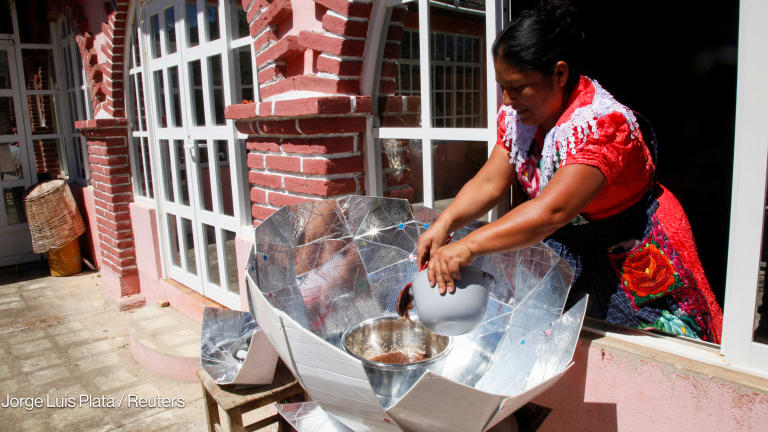Former Mexican President Felipe Calderon said leaders must spur “a new kind of awareness” and provide “new arguments, particularly in the private sector,” in order to drive innovation around climate change.
Speaking with Devex Editor-in-Chief Raj Kumar on the sidelines of the Clinton Global Initiative’s annual meetings in September, Calderon also warned against generalizing about the impacts on developing vs. developed economies’ when reducing reliance on fossil fuels. For an all-in approach to combating climate change, he explained, developing countries like China should pounce on the opportunity to protect the world’s poorest while also improving life at home, on the streets of China’s biggest cities.
“Now that China is losing speed in economic growth, if China moves toward a low-carbon economy … it could get a lot of benefits and reverse a lot of damages that are already happening in its big cities,” he said.








